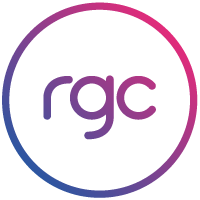AI-generated content is revolutionising the way content is generated and will have a significant impact on the way consumers find and understand your products.
After two decades of carefully refining content production strategies to optimise its findability, marketers must now get their head around how AI-generated content will impact all their learnings.
Producing the mountains of SEO content required to feed our MBA News and Fixed Income News Australia publishing ventures gives us a strong incentive to get our heads around the issue quickly. From our initial experimentation with AI-generated SEO content, it is clear there are a number of positives and negatives.
Positive Impacts on SEO
- Increased Content Production: AI tools can produce a large volume of content quickly, which can help websites maintain a consistent publishing schedule. Regularly updated content is an important factor for search engines like Google, which often favor fresh content when ranking pages.
- Keyword Optimisation: AI tools can assist in optimizing content with relevant keywords, improving the chances of appearing in search results. By analysing keyword trends and incorporating them naturally, AI can help create content that is more likely to rank well for specific search queries.
- Content Personalization: AI can create personalised content based on user data, making it more engaging and relevant to specific audiences. Personalised content can improve user experience, increase time spent on the site, and reduce bounce rates—all factors that positively influence SEO.
- Enhanced Topic Research: AI can analyse large amounts of data to identify trending topics and content gaps, helping content creators develop articles that align with what users are currently searching for. This strategic approach to content creation can result in better search engine rankings.
- Improved User Experience: AI can help create content that is more engaging and better formatted, which improves user experience. Google’s algorithms take user experience into account, so content that is well-organised, easy to read, and provides value is more likely to perform well in search rankings.
Negative Impacts on SEO
- Quality Concerns: AI-generated content can sometimes be repetitive, lack depth, or be of lower quality compared to human-written content. Google’s algorithms are designed to reward high-quality, original content, and may penalise sites that use low-quality or overly generic AI content.
- Risk of Duplicate Content: AI tools can inadvertently produce content that is too similar to existing content on the web, leading to duplicate content issues. Search engines penalise duplicate content because it provides little value to users and can confuse indexing algorithms.
- Over-Optimisation: AI tools may sometimes over-optimise content by stuffing keywords unnaturally, which can result in penalties from search engines. Keyword stuffing is against Google’s guidelines and can lead to lower rankings or removal from search results altogether.
- Lack of E-E-A-T: Google’s Search Quality Rater Guidelines emphasise Experience, Expertise, Authoritativeness, and Trustworthiness (E-E-A-T). AI-generated content may lack these qualities, particularly in niche or highly specialised topics, making it less credible and less likely to rank well in search engines.
- Algorithm Updates and Penalties: Search engines continuously update their algorithms to better understand and rank content. Recent updates like Google’s Helpful Content Update specifically target low-quality, unhelpful content, which can negatively impact sites relying heavily on AI-generated material that doesn’t meet these standards.
Best Practices for Using AI-Generated Content
To mitigate the risks and maximise the benefits of using AI-generated content for SEO, consider the following best practices:
- Human Oversight: Always review and edit AI-generated content to ensure quality, relevance, and compliance with SEO best practices. Human oversight is crucial to avoid errors and maintain content integrity.
- Content Uniqueness: Use plagiarism checkers to ensure the content is unique and does not resemble other content on the web. This reduces the risk of duplicate content penalties.
- Focus on Value: Make sure the content provides value to readers by answering their questions, solving problems, or providing new insights. Avoid creating content solely to rank for keywords without considering user intent and value.
- Avoid Keyword Stuffing: Ensure that keywords are used naturally and relevantly within the content. Over-optimisation can lead to penalties and reduce the content’s effectiveness.
- Maintain E-E-A-T Standards: Incorporate author bios, credentials, and citations from authoritative sources to bolster the content’s credibility. This approach helps build trust and aligns with Google’s emphasis on E-E-A-T.
AI-generated content can be a powerful tool for enhancing SEO when used correctly. It can streamline content creation, optimise keyword usage, and improve user engagement. However, over-reliance on AI without proper human oversight can lead to quality issues, duplicate content, and penalties from search engines. To effectively leverage AI for SEO, it’s crucial to maintain a balance between automation and human input, ensuring that content remains valuable, unique, and aligned with search engine guidelines.


